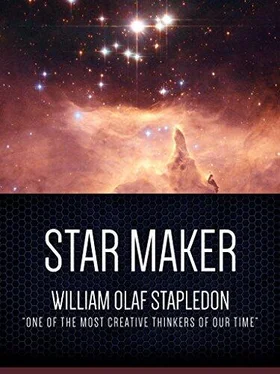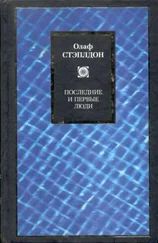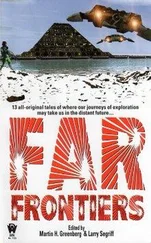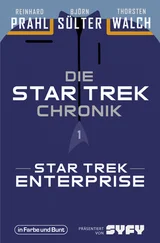When he had given the last touches to all the cosmical ages from the supreme moment back to the initial explosion and on to the final death, the Star Maker contemplated his work. And he saw that it was good.
As he lovingly, though critically, reviewed our cosmos in all its infinite diversity and in its brief moment of lucidity, I felt that he was suddenly filled with reverence for the creature that he had made, or that he had ushered out of his own secret depth by a kind of divine self-midwifery. He knew that this creature, though imperfect, though a mere cerature, a mere figment of his own creative power, was yet in a manner more real than himself. For beside this concrete splendor what was he but a mere abstract potency of creation? Moreover in another respect the thing that he had made was his superior, and his teacher. For as he contemplated this the loveliest and subtlest of all his works with exultation, even with awe, its impact upon him changed him, clarifying and deepening his will. As he discriminated its virtue and its weakness, his own perception and his own skill matured. So at least it seemed to my bewildered, awe-stricken mind.
Thus, little by little, it came about, as so often before, that the Star Maker outgrew his creature. Increasingly he frowned upon the loveliness that he still cherished. Then, seemingly with a conflict of reverence and impatience, he set our cosmos in its place among his other works.
Once more he sank into deep meditation. Once more the creative urge possessed him.
Of the many creations which followed I must perforce say almost nothing, for in most respects they lay beyond my mental reach. I could not have any cognizance of them save in so far as they contained, along with much that was inconceivable, some features that were but fantastic embodiments of principles which I had already encoutered. Thus all their most vital novelty escaped me.
I can, indeed, say of all these creations that, like our own cosmos, they were immensely capacious, immensely subtle; and that, in some alien manner or other, every one of them had both a physical and a mental aspect; though in many the physical, however crucial to the spirit's growth, was more transparent, more patently phantasmal than in our own cosmos. In some cases this was true equally of the mental, for the beings were often far less deceived by the opacity of their individual mental processes, and more sensitive to then-underlying unity.
I can say too that in all these creations the goal which, as it seemed to me, the Star Maker sought to realize was richness, delicacy, depth and harmoniousness of being. But what these words in detail mean I should find it hard to say. It seemed to me that in some cases, as in our own cosmos, he pursued this end by means of an evolutionary process crowned by an awakened cosmical mind, which strove to gather into its own awareness the whole wealth of the cosmical existence, and by creative action to increase it. But in many cases this goal was achieved with incomparably greater economy of effort and suffering on the part of the creatures, and without the huge dead loss of utterly wasted, ineffective lives which is to us so heart-rending. Yet in other creations suffering seemed at least as grave and widespread as in our own cosmos.
In his maturity the Star Maker conceived many strange forms of time. For instance, some of the later creations were designed with two or more temporal dimensions, and the lives of the creatures were temporal sequences in one or other dimension of the temporal "area" or "volume." These beings experienced their cosmos in a very odd manner. Living for a brief period along one dimension, each perceived at every moment of its life a simultaneous vista which, though of course fragmentary and obscure, was actually a view of a whole unique "transverse" cosmical evolution in the other dimension. In some cases a creature had an active life in every temporal dimension of the cosmos. The divine skill which arranged the whole temporal "volume" in such a manner that all the infinite spontaneous acts of all the creatures should fit together to produce a coherent system of transverse evolutions far surpassed even the ingenuity of the earlier experiment in "pre-established harmony."
In other creations a creature was given only one life, but this was a "zig-zag line," alternating from one temporal dimension to another according to the quality of the choices that the creature made. Strong or moral choices led in one temporal direction, weak or immoral choices in another.
In one inconceivably complex cosmos, whenever a creature was faced with several possible courses of action, it took them all, thereby creating many distinct temporal dimensions and distinct histories of the cosmos. Since in every evolutionary sequence of the cosmos there were very many creatures, and each was constantly faced with many possible courses, and the combinations of all their courses were innumerable, an infinity of distinct universes exfoliated from every moment of every temporal sequence in this cosmos.
In some creations each being had sensory perception of the whole physical cosmos from many spatial points of view, or even from every possible point of view. In the latter case, of course, the perception of every mind was identical in spatial range, but it varied from mind to mind in respect of penetration or insight. This depended on the mental caliber and disposition of particular minds. Sometimes these beings had not only omnipresent perception but omnipresent volition. They could take action in every region of space, though with varying precision and vigor according to their mental caliber. In a manner they were disembodied spirits, striving over the physical cosmos like chess-players, or like Greek gods over the Trojan Plain.
In other creations, though there was indeed a physical aspect, there was nothing corresponding to the familiar systematic physical universe. The physical experience of the beings was wholly determined by their mutual impact on one another. Each flooded its fellows with sensory "images," the quality and sequence of which were determined according to psychological laws of the impact of mind on mind.
In other creations the processes of perception, memory, intellection, and even desire and feeling were so different from ours as to constitute in fact a mentality of an entirely different order. Of these minds, though I seemed to catch remote echoes of them, I cannot say anything.
Or rather, though I cannot speak of the alien psychical modes of these beings, one very striking fact about them I can record. However incomprehensible their basic mental fibers and the patterns into which these were woven, in one respect all these beings came fleetingly within my comprehension. However foreign to me their lives, in one respect they were my kin. For all these cosmical creatures, senior to me, and more richly endowed, constantly faced existence in the manner that I myself still haltingly strove to learn. Even in pain and grief, even in the very act of moral striving and of white-hot pity, they met fate's issue with joy. Perhaps the most surprising and heartening fact that emerged from all my cosmical and hypercosmical experience was this kinship and mutual intelligibility of the most alien beings in respect of the pure spiritual experience. But I was soon to discover that in this connection I had still much to learn.
3. THE ULTIMATE COSMOS AND THE ETERNAL SPIRIT
In vain my fatigued, my tortured attention strained to follow the increasingly subtle creations which, according to my dream, the Star Maker conceived. Cosmos after cosmos issued from his fervent imagination, each one with a distinctive spirit infinitely diversified, each in its fullest attainment more awakened than the last; but each one less comprehensible to me.
At length, so my dream, my myth, declared, the Star Maker created his ultimate and most subtle cosmos, for which all others were but tentative preparations. Of this final creature I can say only that it embraced within its own organic texture the essences of all its predecessors; and far more besides. It was like the last movement of a symphony, which may embrace, by the significance of its themes, the essence of the earlier movements; and far more besides. This metaphor extravagantly understates the subtlety and complexity of the ultimate cosmos. I was gradually forced to believe that its relation to each earlier cosmos was approximately that of our own cosmos to a human being, nay to a single physical atom. Every cosmos that I had hitherto observed now turned out to be a single example of a myriad-fold class, like a biological species, or the class of all the atoms of a single element. The internal life of each "atomic" cosmos had seemingly the same kind of relevance (and the same kind of irrelevance) to the life of the ultimate cosmos as the events within a brain cell, or in one of its atoms, to the life of a human mind. Yet in spite of this huge discrepancy I seemed to sense throughout the whole dizzying hierarchy of creations a striking identity of spirit. In all, the goal was conceived, in the end, to include community and the lucid and creative mind.
Читать дальше









![Олаф Стэплдон - Создатель звезд [сборник litres]](/books/433148/olaf-stepldon-sozdatel-zvezd-sbornik-litres-thumb.webp)


